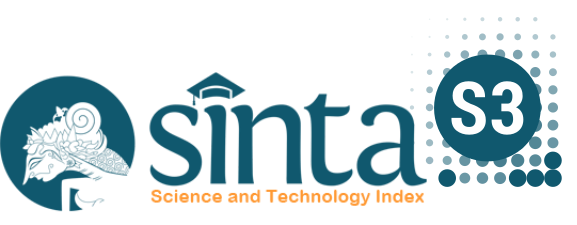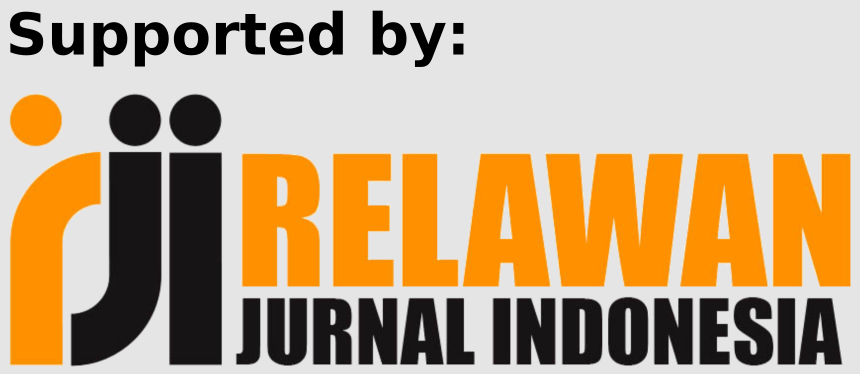Management of perinatal depression by non-health specialist workers in Indonesia
DOI:
https://doi.org/10.31101/jhtam.444Abstract views 1713 times
Keywords:
Perinatal depression, Psychotherapy, Perinatal mental health, Non-health specialist workersAbstract
Downloads
References
Baron, Emily C., Charlotte Hanlon, Sumaya Mall, Simone Honikman, Erica Breuer, Tasneem Kathree, and others, ‘Maternal Mental Health in Primary Care in Five Low- and Middle-Income Countries: A Situational Analysis’, BMC Health Services Research, 16 (2016), 53 <https://doi.org/10.1186/s12913-016-1291-z>
Brittain, Kirsty, Landon Myer, Nastassja Koen, Sheri Koopowitz, Kirsten A. Donald, Whitney Barnett, and others, ‘Risk Factors for Antenatal Depression and Associations with Infant Birth Outcomes: Results From a South African Birth Cohort Study’, Paediatric and Perinatal Epidemiology, 29 (2015), 505–14 <https://doi.org/10.1111/ppe.12216>
Buffet, C., Ciliska, D., & Thomas, H., ‘It Worked There. Will It Work Here? Tool for Assessing Applicability and Transferability of Evidence (A: When Considering Starting a New Program). Hamilton, ON: National Collaborating Centre for Methods and Tools.’, 2011 <http://www.nccmt.ca/resources/publications/9> [accessed 6 July 2018]
Chowdhary, Neerja, Siham Sikander, Najia Atif, Neha Singh, Ikhlaq Ahmad, Daniela C. Fuhr, and others, ‘The Content and Delivery of Psychological Interventions for Perinatal Depression by Non-Specialist Health Workers in Low and Middle Income Countries: A Systematic Review’, Best Practice & Research Clinical Obstetrics & Gynaecology, 28 (2014), 113–33 <https://doi.org/10.1016/j.bpobgyn.2013.08.013>
Dennis, Cindy-Lee, and Therese Dowswell, ‘Psychosocial and Psychological Interventions for Preventing Postpartum Depression’, Cochrane Database of Systematic Reviews, 2013, CD001134 <https://doi.org/10.1002/14651858.CD001134.pub3>
Edwards, Glen, Naotaka Shinfuku, Martin Gittelman, Endang Ghozali, Fatimah Haniman, Sasanto Wibisono, and others, ‘Postnatal Depression in Surabaya, Indonesia’, International Journal of Mental Health, 35 (2006), 62–74 <https://doi.org/10.2753/IMH0020-7411350105>
Gao, Ling-ling, Sally Wai-chi Chan, and Ke Sun, ‘Effects of an Interpersonal-Psychotherapy- Oriented Childbirth Education Programme for Chinese First-Time Childbearing Women at 3- Month Follow up: Randomised Controlled Trial’, International Journal of Nursing Studies, 49 (2012), 274–81 <https://doi.org/10.1016/j.ijnurstu.2011.09.010>
Kurniawan, E.S, Nyoman, R., Wayan, W., ‘Factors Lead to Depression during Antenatal Care Every Trimester of Pregnant Mother’, E-Jurnal Medika Udayana, 2 (2013), 502–14 <https://ojs.unud.ac.id/index.php/eum/article/view/4936> [accessed 6 July 2018]
Ministry of Health of Indonesia. 2013, ‘Indonesia Health Country Profile’ <http://www.depkes.go.id> [accessed 6 July 2018]
Najia, A., Karina, L. & Atif, R., ‘Maternal Mental Health: The Missing “m†in the Global Maternal and Child Health Agenda (Special Issue: Global Perinatal Medicine)’, 2015, 345–52
Rahman, A., R. Harrington, and J. Bunn, ‘Can Maternal Depression Increase Infant Risk of Illness and Growth Impairment in Developing Countries?’, Child: Care, Health and Development, 28 (2002), 51–56 <https://doi.org/10.1046/j.1365-2214.2002.00239.x>
Rahman, Atif, Abid Malik, Siham Sikander, Christopher Roberts, and Francis Creed, ‘Cognitive Behaviour Therapy-Based Intervention by Community Health Workers for Mothers with Depression and Their Infants in Rural Pakistan: A Cluster-Randomised Controlled Trial’, The Lancet, 372 (2008), 902–9 <https://doi.org/10.1016/S0140-6736(08)61400-2>
Sockol, Laura E., C. Neill Epperson, and Jacques P. Barber, ‘A Meta-Analysis of Treatments for Perinatal Depression’, Clinical Psychology Review, 31 (2011), 839–49 <https://doi.org/10.1016/j.cpr.2011.03.009>
Tezel, Ayfer, and Sebahat Gözüm, ‘Comparison of Effects of Nursing Care to Problem Solving Training on Levels of Depressive Symptoms in Post Partum Women’, Patient Education and Counseling, 63 (2006), 64–73 <https://doi.org/10.1016/j.pec.2005.08.011>
Tripathy, Prasanta, Nirmala Nair, Sarah Barnett, Rajendra Mahapatra, Josephine Borghi, Shibanand Rath, and others, ‘Effect of a Participatory Intervention with Women’s Groups on Birth Outcomes and Maternal Depression in Jharkhand and Orissa, India: A Cluster-Randomised Controlled Trial.’, Lancet (London, England), 375 (2010), 1182–92 <https://doi.org/10.1016/S0140-6736(09)62042-0>
Wang, Shuhong, John R. Moss, and Janet E. Hiller, ‘Applicability and Transferability of Interventions in Evidence-Based Public Health’, Health Promotion International, 21 (2006), 76– 83 <https://doi.org/10.1093/heapro/dai025>
World Health Organization, ‘Thinking Healthy: A Manual for Psychosocial Management of Perinatal Depression’, 2015 <http://www.who.int> [accessed 6 July 2018]
Downloads
Published
How to Cite
Issue
Section
License
Authors who publish with Journal of Health Technology Assessment in Midwifery agree to the following terms:
- Authors retain copyright and grant the journal right of first publication with the work simultaneously licensed under a Creative Commons Attribution License (CC BY-SA 4.0) that allows others to share the work with an acknowledgment of the work's authorship and initial publication in this journal.
- Authors are able to enter into separate, additional contractual arrangements for the non-exclusive distribution of the journal's published version of the work (e.g., post it to an institutional repository or publish it in a book), with an acknowledgment of its initial publication in this journal.
- Authors are permitted and encouraged to post their work online (e.g., in institutional repositories or on their website) prior to and during the submission process, as it can lead to productive exchanges, as well as earlier and greater citation of published work.

Journal of Health Technology Assessment in Midwifery is licensed under a Creative Commons Attribution-ShareAlike 4.0 International License..













